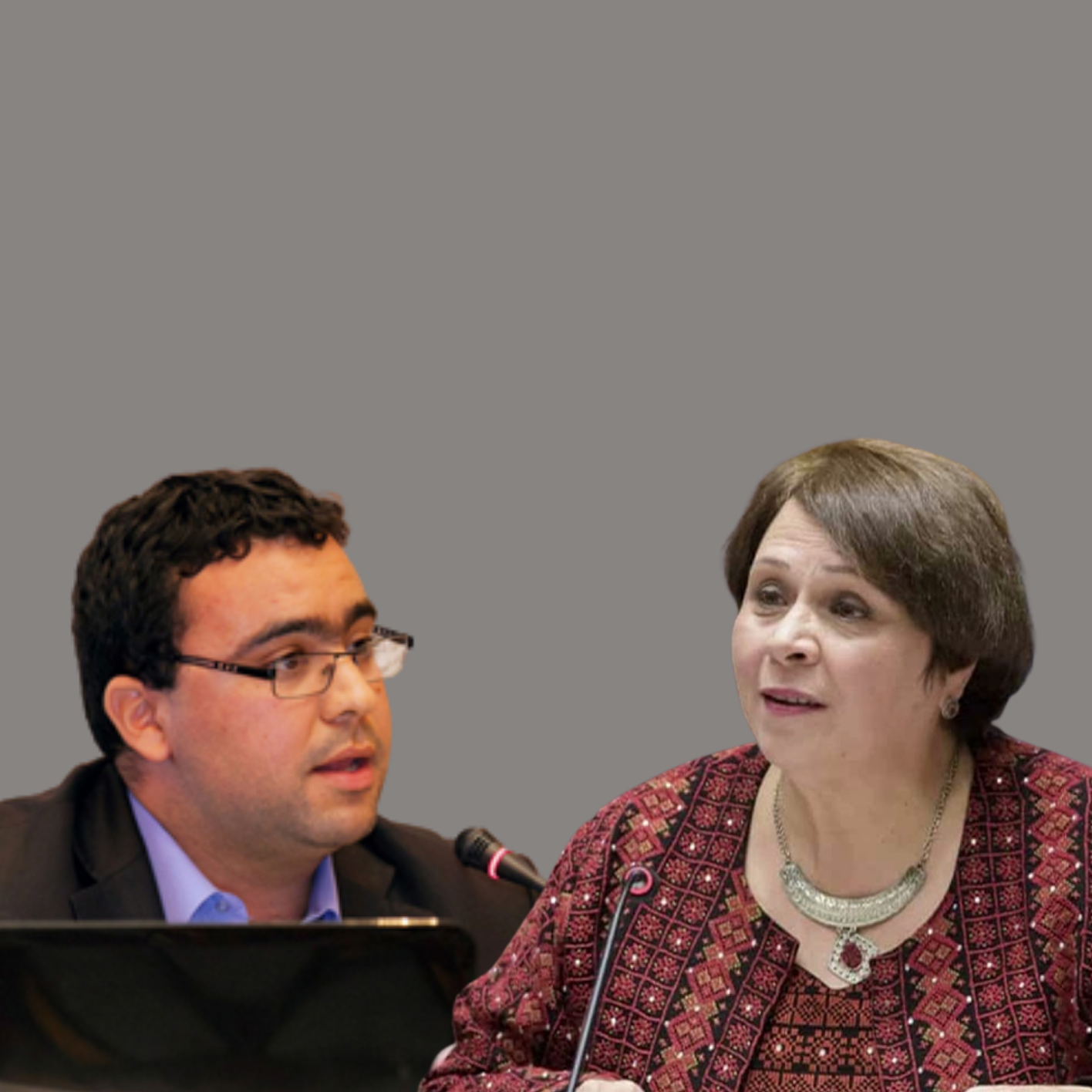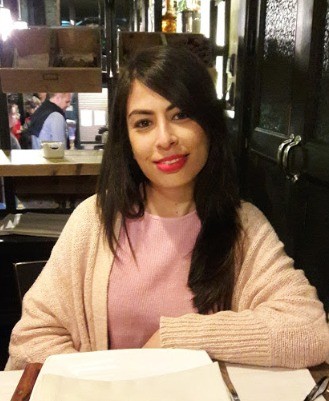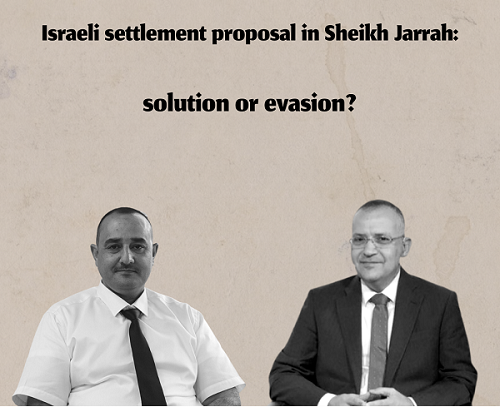
*There must be focus on gender and social justice in drafting the Palestinian constitution
* The Tunisian constitution is a unique experience but it tells a completely different story
Introduction
Professor of Constitutional Law at Al Najah National University Dr. Sana’ Sargali, stressed on the importance of a constitutional court in the state- building process and in the separation of powers. She called for spreading awareness and a constitutional culture among citizens and various social sectors so as to have a broad-based participation in drafting the next Palestinian constitution, which expresses the convictions and beliefs of these sectors. She also said focus must be put on gender and social justice during the drafting process.
Following is “Hosted by MIFTAH’s” full interview with Dr. Sargali:
**How would you evaluate the constitutional situation in Palestine today?
I believe Palestine today has entered into what is called a “state of exception” even though Palestine is not an exception. This is important to differentiate: this state of exception is the state when something unordinary becomes ordinary; that is, the legal vacuum we live in today. This is a state that emerged with the continued “state of necessity” which we have lived in since 2007, which means that any constitutional development or building a constitutional phase must begin with addressing this state. The lack of convening the PLC has given the opportunity for the executive authority to become the sole legislator, which completely annuls the concept of the separation of powers in Palestine. Furthermore, the misunderstood overlapping between PLO institutions and the PA has paved the way for a constitutional overlapping as well. This necessitates a clarification of this relationship in any constitutional system so there are clear markers for the constitutional and political system in Palestine.
I think a Palestinian constitutional court and its laws provide the right for direct lawsuits in the case of a violation of citizens’ rights. In this case, the citizen can go directly to the constitutional court. The question is, how much is this right enacted. Hence, establishing a constitutional court in this current political situation leaves us with questions about the extent of this court’s independence, even though it is hard to judge these courts in the first five years of their establishment because, unfortunately, these courts are politicized from the beginning – or at least they are set up to support the system that created them. Thus, at this time, we do not know to what extent these courts can extricate themselves from under the cloak of the system that created them so we can see just how strong they really are and whether they work towards protecting and helping citizens, or will their purpose remain to serve the system. **What is your take on the subject of establishing the constitutional court? How will this reflect on the state of human rights in Palestine?
There were concerns about creating a constitutional court in the current constitutional situation, especially since courts are trying to separate themselves from the political system and prove themselves as a strong institution among all the others. Hence, I was not surprised by this decision. It reminded me of a position taken by the US Supreme Court in the famous Marbury case, where the court did not want to appear to be affiliated with the system, which would weaken it. Neither did it want to lose the system so it expanded its authorities through the judicial courts. That is why I want to stress the importance of taking it slowly until we see where this constitutional court will go.
**What are the most prominent legal loopholes in the procedures within the constitutional draft committee?
The Basic law, or the constitution in Palestine has routinely been made absent in dialogue in favor of more pressing interests such as the political division. As a Palestinian citizen, I feel the existence of independent and separate executive, legislative and judicial institutions is extremely important. However, from a theoretical and practical perspective, the constitutional court could play a political role – sometimes purely political – once established, which results in an overturn of political balances in the country. We all saw the role played by the Egyptian constitutional court in 2011, which persists until today. Hence, the establishment of constitutional courts can be a double-edged sword.
However, in spite of these concerns, I believe we must have a Palestinian constitutional court and we must give it the chance to prove its effectiveness before it becomes politicized.
For any entity that is striving to become a state, the answer is to draw up a constitution. However the solution may not be this; rather, this could be the start of problems. We must ask ourselves: when should the solution be to draw up a constitution? I think first this must happen in a calculated and correct manner. Unfortunately, when the constitutional draft committee was formed in 2016, I had hoped the discussion would be open and public. We have had a Basic Law for a long time, but this was supposed to be transitional. However, it has been postponed until today. The constitutional draft committee supposedly should have put the draft to a discussion by all the various social sectors and groups, which is why this should have been done in stages. We saw the flaws in the Basic Law; we should have worked on it before we drafted anything temporary so that afterwards the stage of drafting a permanent constitution could take place with the involvement of elected and not appointed committees. We should have ensured there was a kind of referendum over it where the people are involved in these discussions so it would not be something imposed.
**Can you explain the dialectical relationship between forming a constitutional court in the absence of completing the Palestinian constitution and the duality of its members’ roles?
There is not supposed to be any duality between the constitutional drafting committee and the members of the constitutional court. I believe this court should distance itself from being a legislating body and rather be a reference for the constitution to ensure that all the principles we want in it are there. This is a reiteration about the need for awareness among the citizens on this issue and agreement over the principles and foundations we want to have in the constitution, including the civility of the state. We may agree to this or not; we may agree on the nature of the political system or not; this is where the role of the constitutional court comes in after the constitution is written. That is, it will review it to ensure that the principles agreed on have been enshrined in this document.
**How can you ensure the identity of a civic state in the constitution, which is absent in the Palestinian Basic Law and the Palestinian draft constitution?
First of all, we must understand the meaning of the civic state. Do we mean a kind of separation of state and religion? Or the absence of a military state (military rule)? These concepts should be clear to us. If we mean the absence of a military state, we must be very careful that what happened in Egypt does not happen to us; that is, the military taking over authority. This needs foundations, procedures and precautionary measures mentioned in the constitution and stipulated in it. If, however, we want a civic state, does this mean we do not want the application of Sharia law, for example? Or do we want to emulate the Tunisian experience in terms of teachings on tolerance. What kind of Islamic Sharia do we want? Would it only be applied to the Personal Status Law?
We assume these things will be discussed at a broad- based level and will have a sort of popular, factional and political consensus over it, because this is not just a decision or a phrase thrown into the constitution. This is supposed to be a well- calculated phrase, one which we are aware of its impacts and meanings.
**Based on your study of constitutions, how would you describe the Tunisian constitution of 2014 and the Egyptian constitution in terms of the civic identity of the state?
Tunisia represents a wonderful experience in terms of the “best road to the destination”. That is, Tunisians arrived at their constitution in the best way; the Tunisian constituent association formulated it and all sectors were represented in it. Also, discussions over the constitution lasted a long time and the Tunisian people participated in its making, including through social media. However, if we look at the content of the constitution, this is a different story. While it does speak about the ‘tolerant spirit of Islam” and its language is gender-strong in that it reaffirms the term “Tunisian citizen (in the masculine)” and “Tunisian citizen (in the feminine form)”. However, if we look at the constitution holistically, we do not know what the Tunisians meant by the term “the civic- nature of the state”. This was not clear, especially when speaking about this state, the constitution conditions that the president must be Muslim.








